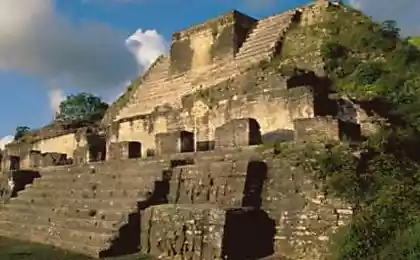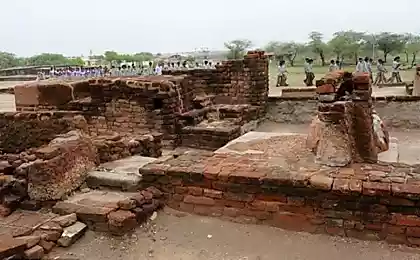1161
People living in isolation
Hermits - people who live or dream of living not like everything, but because they want to, as called for their nature and purpose. Many of them were frustrated by society, while others have simply decided to cease contact with the outside world. And you would be able to live this way? 30 years in the mountains of Alaska. After years of service in the Navy and working as a mechanic American Richard Proenneke chose a rather unusual way to relax on the pension. He built a hut high in the mountains of Alaska, in the picturesque place called Twin Lakes. There he lived for almost thirty years - until his death. It should be noted that the hermit not completely cut himself off from the outside world: several times he made the long journey to Iowa, to their relatives. However, most of his life he spent in solitude in the wilderness. He hunted, fished and studied nature, opening a natural-born naturalist. Episodes of his solitary life Proenneke recorded on tape, which was later installed in a series of documentary films "Alone in the Wild." His recordings have been adapted for a number of books, and, in addition, he wrote several important articles in the field of meteorology and biology.
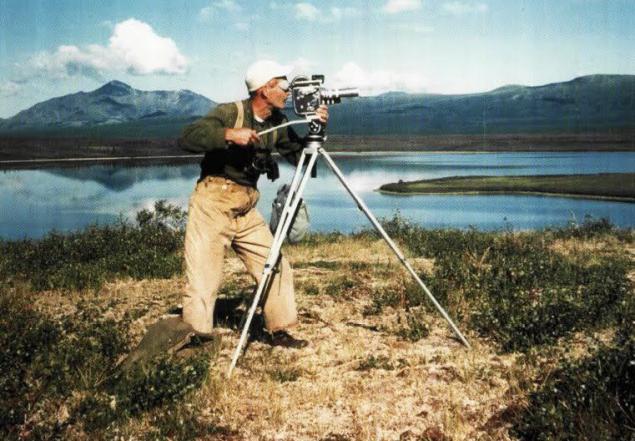
During the Vietnam War, when a bomb killed his wife and two of his sons, forty-two Vietnamese Ho Wang Tann escaped into the jungle with the sole survivor of a two-year son. There the two remained live for the next 40 years, and even heard from relatives that the war was not forced hermit father back into the cruel world of men. Most recently - in August 2013 - the workers from the nearby village found the jungle forty-two man and his elderly father. They have little understanding of the local language, were exhausted and looked absolutely savage. All these years, they lived in simple-hut and fed mainly only on roots, wild fruits and corn.
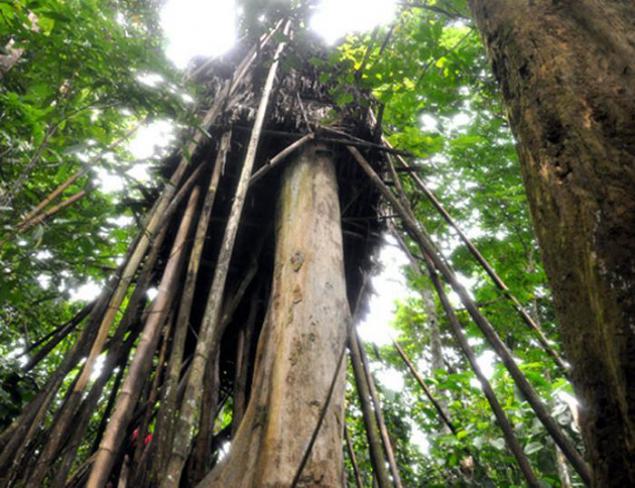
Since the state of his old father raises fears after discovering he was sent to the hospital. Both men now have to attempt socialization in modern society.
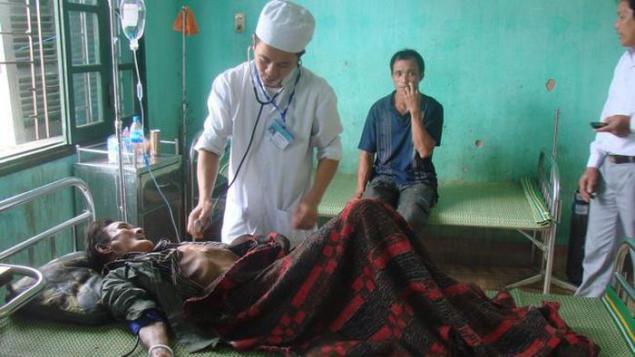
Family Lykovs: life in the taiga At the time this story occupied the front pages of Soviet newspapers. In 1978, geologists during an expedition in a remote corner of the Taiga instead of mineral deposits discovered a family of six who lived in the forest for forty years. Karp Lykov and his family were Old Believers. Even during the revolution, many Old Believers fled to Siberia to escape the persecution of Communists; some of these refugees were Lykovs. In 1936, a tragedy occurred: the elder brother Lykov was shot. Fleeing from Stalin's repressions, the family fled to the forest ... With their modest belongings Lykovs went farther and farther away from society, stopping only a couple of hundred kilometers from the border with Mongolia. Husband, wife and their four children (two were born in the Taiga) lived only those that were grown or caught in the hunt. They often go hungry; mother of the family died of starvation in 1961 after so once again gave their portion of food to children. Lykovs and never heard any of flying to the moon, or even about the Great Patriotic War. Little things like the modern world as plastic bags, bring them to a complete delight. Over the years the younger children began to speak in dialect, which only with difficulty it was possible to identify the Russian language. Once geologists have entered into contact with the Lykov family members gradually began to trust them, however, deeply religious, they refused to leave his house cut off from society.
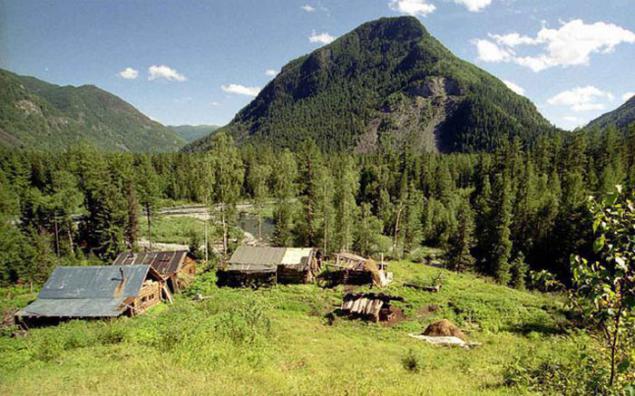
Over the next few years, three out of four children have died. Two died from kidney problems caused by long years of malnutrition. Third pneumonia killed; medical treatment, he flatly refused. Their father died in 1988. Agatha Lykov, the last of the family still lives in the same place all alone. Now she is almost seventy years old, and for all her life, she never left the limits of his native taiga region.
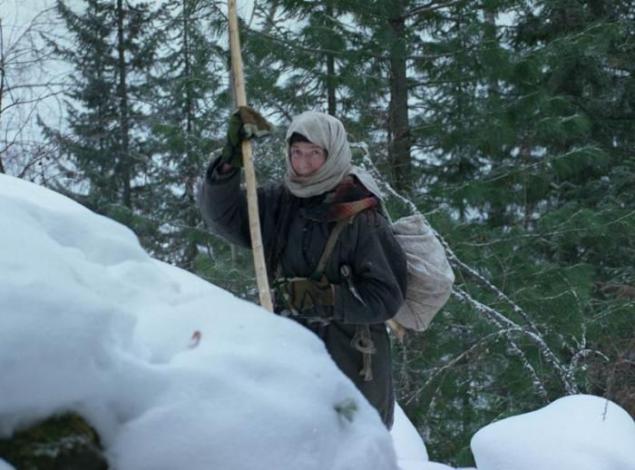
Japanese guerrillas, who have not lost ground in the distant 1944, the Japanese army Lieutenant Hiroo Onoda sent and a few other teams in the sparsely populated island of the Philippines Lubanga to fight a guerrilla war. And, although pretty soon after that World War II was over, no Onoda, nor its people are not informed about this, and they have left to live and fight in the jungle for thirty years. In October 1945, the Japanese government tried to inform about the end of the soldiers hiding in the deep jungle, but Onoda and his companions took the news papers and leaflets dropped from overflying aircraft for enemy propaganda. And although they have read all the news until the last word, they decided not to give up until then, until they receive orders from their commander in chief. And, although finding them were sent detachments to discover guerrillas did not succeed. Over the years, all the supporters Onoda died, and one of them decided to give up and secretly fled. The next twenty years, Onoda was living alone, becoming a legend among Japanese and Filipino soldiers, confident in his death. In 1974, he happened to meet a young traveler Norio Suzuki. He tried to convince the die-hard soldier personally that the war is over, but Onoda, he had not believed it. Suzuki had to find Onoda-chief and arrange a meeting between them. When Onoda learned the truth, he was shocked to the core. Japanese authorities, he was proclaimed heroes, and he was forgiven for the murder of Filipinos, which he made while on the island. However, to join the modern Japanese society Onoda did not succeed. As a result, he moved to live in Brazil. After moving to Brazil, he was a fairly active social life, with time to organize and lead the Brazilian Society of Japanese. In parallel, he raised cattle on the farm: a considerable scope of work for an elderly person. There Onoda and married. When age does not allow him to have to work on the farm, Onoda returned to his homeland: Hokkaido he organized a school for troubled teens, which leads them on hikes and teach not only the science of survival in a harsh nature, but also discipline and mutual assistance. For successful work with young people in November 1999, Onoda was awarded the prize in the field of social education of the Ministry of Culture, Education and Sport of Japan. He is now 90, but he continues to work with difficult teenagers, lectures at universities, participate in social activities in Japan and Brazil, engaged in charity in the Philippines (which for so long fought), writing books and articles wife Onoda is the chairwoman of the Women's Association of Japan and deputy Board of Ehime Prefecture.
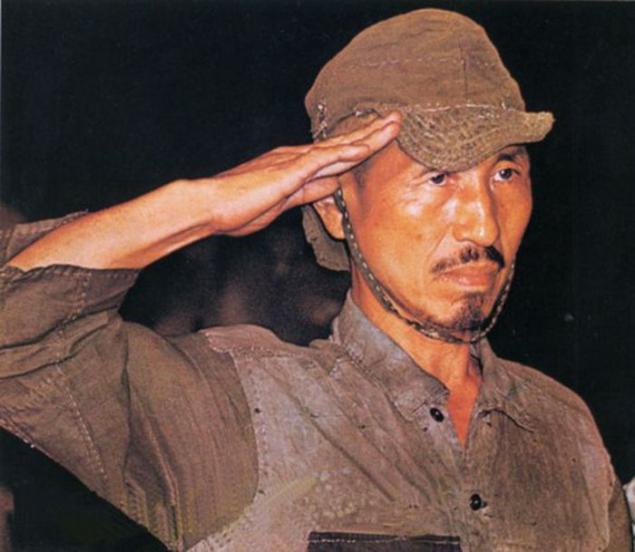
The last of the tribe in the Amazon jungle. Almost twenty years ago in the Brazilian jungle it was found a lone Indian who, apparently, was the last of his tribe. Attempts by the authorities to enter into contact with him ended in failure: Indian unhesitatingly shot an arrow in the chest of one of the rescuers. It should be noted that earlier desire to integrate Indians into society, as a rule, failed and ended early deaths Amazonian savages. As a result, the authorities declared the land fifty kilometers around the place of his residence inviolable. The man, who is to be forty years, still leads a lonely isolated lives in the jungle.
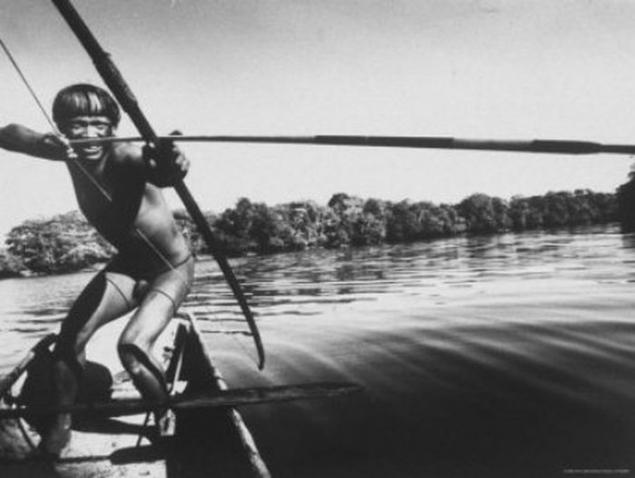
Source: p-i-f.livejournal.com

During the Vietnam War, when a bomb killed his wife and two of his sons, forty-two Vietnamese Ho Wang Tann escaped into the jungle with the sole survivor of a two-year son. There the two remained live for the next 40 years, and even heard from relatives that the war was not forced hermit father back into the cruel world of men. Most recently - in August 2013 - the workers from the nearby village found the jungle forty-two man and his elderly father. They have little understanding of the local language, were exhausted and looked absolutely savage. All these years, they lived in simple-hut and fed mainly only on roots, wild fruits and corn.

Since the state of his old father raises fears after discovering he was sent to the hospital. Both men now have to attempt socialization in modern society.

Family Lykovs: life in the taiga At the time this story occupied the front pages of Soviet newspapers. In 1978, geologists during an expedition in a remote corner of the Taiga instead of mineral deposits discovered a family of six who lived in the forest for forty years. Karp Lykov and his family were Old Believers. Even during the revolution, many Old Believers fled to Siberia to escape the persecution of Communists; some of these refugees were Lykovs. In 1936, a tragedy occurred: the elder brother Lykov was shot. Fleeing from Stalin's repressions, the family fled to the forest ... With their modest belongings Lykovs went farther and farther away from society, stopping only a couple of hundred kilometers from the border with Mongolia. Husband, wife and their four children (two were born in the Taiga) lived only those that were grown or caught in the hunt. They often go hungry; mother of the family died of starvation in 1961 after so once again gave their portion of food to children. Lykovs and never heard any of flying to the moon, or even about the Great Patriotic War. Little things like the modern world as plastic bags, bring them to a complete delight. Over the years the younger children began to speak in dialect, which only with difficulty it was possible to identify the Russian language. Once geologists have entered into contact with the Lykov family members gradually began to trust them, however, deeply religious, they refused to leave his house cut off from society.

Over the next few years, three out of four children have died. Two died from kidney problems caused by long years of malnutrition. Third pneumonia killed; medical treatment, he flatly refused. Their father died in 1988. Agatha Lykov, the last of the family still lives in the same place all alone. Now she is almost seventy years old, and for all her life, she never left the limits of his native taiga region.

Japanese guerrillas, who have not lost ground in the distant 1944, the Japanese army Lieutenant Hiroo Onoda sent and a few other teams in the sparsely populated island of the Philippines Lubanga to fight a guerrilla war. And, although pretty soon after that World War II was over, no Onoda, nor its people are not informed about this, and they have left to live and fight in the jungle for thirty years. In October 1945, the Japanese government tried to inform about the end of the soldiers hiding in the deep jungle, but Onoda and his companions took the news papers and leaflets dropped from overflying aircraft for enemy propaganda. And although they have read all the news until the last word, they decided not to give up until then, until they receive orders from their commander in chief. And, although finding them were sent detachments to discover guerrillas did not succeed. Over the years, all the supporters Onoda died, and one of them decided to give up and secretly fled. The next twenty years, Onoda was living alone, becoming a legend among Japanese and Filipino soldiers, confident in his death. In 1974, he happened to meet a young traveler Norio Suzuki. He tried to convince the die-hard soldier personally that the war is over, but Onoda, he had not believed it. Suzuki had to find Onoda-chief and arrange a meeting between them. When Onoda learned the truth, he was shocked to the core. Japanese authorities, he was proclaimed heroes, and he was forgiven for the murder of Filipinos, which he made while on the island. However, to join the modern Japanese society Onoda did not succeed. As a result, he moved to live in Brazil. After moving to Brazil, he was a fairly active social life, with time to organize and lead the Brazilian Society of Japanese. In parallel, he raised cattle on the farm: a considerable scope of work for an elderly person. There Onoda and married. When age does not allow him to have to work on the farm, Onoda returned to his homeland: Hokkaido he organized a school for troubled teens, which leads them on hikes and teach not only the science of survival in a harsh nature, but also discipline and mutual assistance. For successful work with young people in November 1999, Onoda was awarded the prize in the field of social education of the Ministry of Culture, Education and Sport of Japan. He is now 90, but he continues to work with difficult teenagers, lectures at universities, participate in social activities in Japan and Brazil, engaged in charity in the Philippines (which for so long fought), writing books and articles wife Onoda is the chairwoman of the Women's Association of Japan and deputy Board of Ehime Prefecture.

The last of the tribe in the Amazon jungle. Almost twenty years ago in the Brazilian jungle it was found a lone Indian who, apparently, was the last of his tribe. Attempts by the authorities to enter into contact with him ended in failure: Indian unhesitatingly shot an arrow in the chest of one of the rescuers. It should be noted that earlier desire to integrate Indians into society, as a rule, failed and ended early deaths Amazonian savages. As a result, the authorities declared the land fifty kilometers around the place of his residence inviolable. The man, who is to be forty years, still leads a lonely isolated lives in the jungle.

Source: p-i-f.livejournal.com








